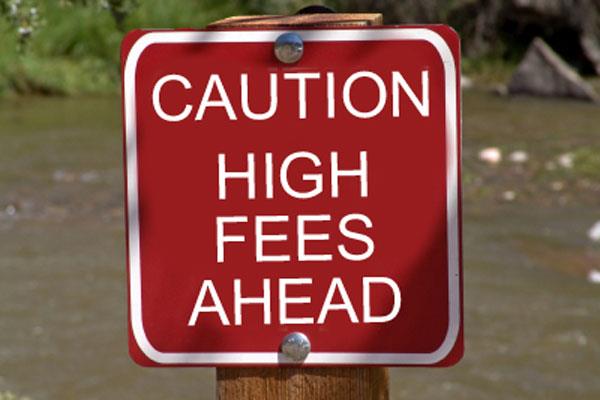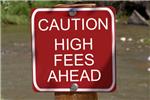6 Ways Banks Can Prevent Overdraft Fees.

By
Staten Island, NY Posted: 10/14/2014 1:00:00 AM
Overdraft fees are a big source of revenue for banks.
Long before today's automation, a "Bounced Check" was actually a labor intensive activity. You wrote a check from your local checking account and sent it to somebody at a completely different bank, and that check travelled back and forth between the banks, until it "cleared". If your account didn't have the funds to cover it, the check was like a needle in a haystack... but they managed to send it back to the person who deposited it, only to be sent back to the original bank. It's no wonder they charged a fee for bouncing checks.
Times have changed. Labor has been eliminated, but the fees have grown larger.
Bank charges are understandable if somebody hand writes a bad check, because they are responsible for checking the balance first. For all the other transactions, the fees could be avoided entirely by using one of these methods.
1. Allow customers the option to VOID the transaction unless the funds are available.
The easiest option is to allow customers to establish rules for how these types of transactions are handled. Assuming you were the one who scheduled the charges, you should be able to set a rule that says "VOID unless there are funds to clear it". So, unlike an overdraft, this is simply a transaction that never takes place. No labor is involved. No charges need to be reversed... they simply don't send the transaction. It never existed.
2. Send warnings whenever any scheduled or automatic charges are more than your balance.
If the charge was scheduled, why not send a notice the day BEFORE the transaction was scheduled letting you know there wasn't enough money in the account?
If you have online banking, with a click of the button, you can transfer the money and you'll avoid the fees. The trouble is, not everyone checks their accounts on a daily basis, and sometimes we don't know when scheduled and electronic bills will pop into our account. A simple warning email or text message will at least give the customer the opportunity to transfer funds or void the transaction before it hits.
3. Backup account auto-transfers.
Another simple solution is to have a "Cover with this account..." option that lets you establish a backup account, so unless ALL your accounts are empty, you will never bounce a check or scheduled charge again. Because all you are doing is saying "transfer money from my account to cover it" these should not be considered an overdraft, so there shouldn't be a fee. Some banks already offer this, but the fees are almost as high as their overdraft fees.
4. Fees should never exceed the transaction itself.
Have you ever had a $35 overdraft for a $2 charge? Are they kidding? Either reject the transaction or skip the fees. There is no justification for charging a fee that is larger than the transaction amount. If there are multiple small transactions that add up to an amount higher than the fee, one fee for the overdraft condition would be a reasonable penalty.
5. Decline Debit Card Transactions when they exceed the balance.
I shouldn't even need to write this. If you use a debit card in a store or ATM and the charges are more than your balance... Banks should simply decline the charge. Why should they approve the transaction in the first place? Oh yeah... I forgot. They like when you go over the balance, so they can charge the overdraft.
6. Stop Re-Sorting Transactions High to Low.
I wrote about how many banks intentionally change the way transactions are sorted in order to jack up fees in a previous Idea Of The day. You can read that post here Banks Should Stop Inflating Overdraft Charges by Sorting Charges By Amounts By LOWEST First
 Joe Crescenzi, Founder
Joe Crescenzi, Founder
Related Media:

(Reply N/A) (Edit Topic N/A)
(Like Topic N/A) [0 ] 8029 Views
Related Posts
Banks(3)Finance(21)Rip Offs(9)
Top 25 Posts
* Note: The ideas on "Idea of the Day" were posted without any formal research into existing inventions.
In some cases, patents may already exist for these ideas, in other cases, there may not be any existing patents and you are free to develop and explore the viability of developing and patenting the ideas.
The authors make no claim that any of the ideas are safe, practical, or suitable for any particular purpose. You are responsible for the results of trying, developing, patenting or using any of the ideas on this site.
For some people, our ideas are just an interesting read, but our goal is to encourage you to take action. If you see an idea that you like, do something with it... Take action.
- Joe
 on...
on...
 on...
on...